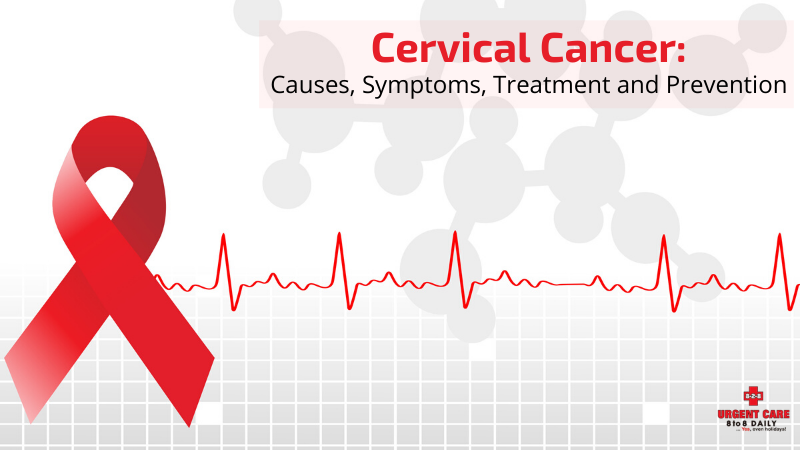


The cervix is the lower part of a woman’s uterus, which connects the uterus to her vagina. Cervical cancer occurs when cervix cells grow abnormally and invade other organs and tissues of the body. This cancer may affect the deeper tissues of the cervix and spread to other parts of the body, including the rectum, lungs, vagina, liver, and bladder. Fortunately, this cancer grows slowly and so earlier diagnosis and treatment will help prevent its progression.
Cervical cancers are mostly caused by human papillomavirus (HPV). There are different types of HPV viruses, but only certain types cause cervical cancer. HPV-16 and HPV-18 are the two most common types that cause cancer of the cervix. Being infected with the HPV virus does not mean that you will develop cancer.
The HPV infection is spread through skin-to-skin or sexual contact. This infection is common and resolves on its own. Only in some women, the HPV infection persists and causes precancerous changes in the cells of the cervix. However, these changes can be detected earlier by the regular screening test.
Besides HPV infection, other factors that can increase your risk for developing cervical cancer include:
Early stages of cervical cancer do not develop any symptoms. The symptoms will appear only when cancer has progressed to an advanced stage. Typical cervical cancer symptoms and signs include:
Early diagnosis will help treat cervical cancer. Treatments for cervical cancer include:
Early-stage cervical cancer is usually treated with any of these surgeries depending on the size and progression of your cancer and whether you would like to become pregnant.
It is a drug treatment that uses chemicals to destroy cancer cells. The drug can be taken in pill form or given through the vein.
This drug treatment focuses on specific weaknesses in the cancer cells. The treatment blocks these weaknesses and causes cancer cells to die.
It uses high-powered energy beams such as protons or x-rays to kill cancer cells.
Follow these tips to prevent cervical cancer: